 261281
261281
Why are we not Romanian?
1. Our ancestors lived in the same zone for 8000 years (since the foundation of the Cucuteni-Tripoli civilization). This area was later named the Carpathian-Danube-Dniester territory.
The size of the territory inhabited by the local population always varied. When in danger, our civilization retreated to live in the forests and by the mountains. In times of peace, people came back to their initial home-territories. The continuity of this process was proved trough a lot of historical, anthropological, genetic and linguistic research.
2. This nation has put the foundation and stands at the origins of many ancient civilizations – from the Oriental ones, to most of the European ones, including the Greeks and the Romans.
3. If to refer to our ancestors that lived at the start of a new era, the Geto-Dacians – inhabitants of a state that occupied all the territory from the Bug river (Ukraine) till the frontiers of modern-day Germany, lined up with the Danube river to the south. The Geto-Dacians (or Getae) were the carriers of the Thracic culture and language, a language from the proto-Latin linguistic group (that appeared before the Latin language).
4. In 106 AD, the Roman empire occupied only 20% of the Dacian territories, thus forming the Dacia province. A territory that they had to abandon in 271 AD because of the raids of the free Getae folk. As a consequence, to such an evolution of events, historians provided us with different theories about the Dacian Romanization and the Roman origin of the Valachs and the Moldavians. We would like to mention the fact that an adept of these theories was the Moldavian chronicler Miron Costin, who invoked in support of his version about our roman origins, some arguments that were later confirmed trough archeological research. The process of Romanization consists of changing the culture and language of the local population to the Roman and Latin one. But such transition didn’t happen in the Dacian province. Even before the Roman Empire included Dacia in its territories, the Getae already spoke a language similar to Latin, with a rich and original culture. This way we can explain how the Moldavian language is related to the so called languages of the Latin linguistic groups
5. Throughout history (at least starting from the XII century) Moldavians never called themselves Romanians, or their language- Romanian. They called themselves Moldavians, and their language was Moldavian! We can see this in numerous documents – Moldavian manuscripts (including the opera of Miron Costin), the edicts emitted by the royal court, the documents of other neighbor states.
6. The concept of Romanianism appeared as a lack of knowledge about their true origins, and progressed in the medium of the transilvanian Valachs, their territory being part of the Hungarian kingdom. This concept as we stated previously is wrong, though in some ways, romanianism saved the transilvanian Valachs from the Hungarian assimilation. They acknowledged the fact that they were an ancient and ``noble`` nation, thus keeping their roots. So at this stage of evolution of the transilvanian Valachs the concept of Romanianism played a positive role.
7. Romanianism had its own role, in the times of the union between the principalities, middle of the XIX-th century. A part of the Moldavian intellectuality-writers, politicians, representatives of the military, students and so on… Adopted Romanianism as a symbol for the union and salvation of the nation. But because of the lack of experience, our people were caught in a political trap created by our Valachian brethren. Instead of naming the new formed state ``The United Principalities of Moldavia and Valachia``, by breaking all international treaties, they named both the country and the language under a common name, Romania and Romanian.
8. This is why Moldavians (and contemporary Romanians) can’t accept Romanianism today because:
- We are not the descendants of Rome, and we have little in common with the population of the Roman Empire, our civilization is independent from a cultural and ethnic point of view. Our ancestors, the carriers of a rich and positive culture couldn’t stand to watch the butchering of gladiators in arenas. They couldn’t understand the fundamental roman principles of ``Divide and conquer``, or ``Bread and games``. Our civilization doesn’t have 1900 years, as some Romanian historians say, but way more.
- We are a ethnos – a descendant of the ancient civilizations (homogenous from anthropological, genetical and cultural points of view) from the Carpathian-Danube-Dniester territory, 8000 years old. A fact confirmed by historical, archeological, linguistic and genetic contemporary research.
- The knowledge of our ancient origin was manifested trough the fact that the founders of the Moldavian state adopted the symbols of our ancestors – the head of the Fire Bull God, the red color of our flag, the soldier that defeats a dragon, and not the roman eagle.
- The national knowledge of our own true history and name of our ethnos allows us to keep the knowledge about our evolution, our particularities, it gives the chance to keep our old symbols and traditions, the memory of our ancestors and the true heroes of our nation. True history explains the origin of our language, culture and population traditions, this way forming a vigorous foundation that supports further development of our nation. The deeper our research about the origins of our nation and its history go, the clearer becomes the present and the future. And only on this basis it is possible to consolidate the people to achieve the best future for country, including the high-grade development of ethnic minorities.
- Our ancestors always, throughout the whole history of their existence named their country Moldova, named themselves Moldavians, and the language – Moldavian! Therefore, we aren't Romanians! We are Moldavians! Our ancestors named themselves this way so shall we, and our descendants!
În contextul lansării programului ”Satul European”, ce probleme vitale există în localitatea dumneavoastră?
- Statut:
- Sat
- Prima atestare:
- 1710
- Populația:
- 998 locuitori
Ofatinţi este un sat şi comună din Unitățile Administrativ-Teritoriale din Stînga Nistrului, Republica Moldova. Din componenţa comunei fac parte localităţile Novaia Jizni și Ofatinţi. Localitatea se află la distanța de 12 km de orașul Rîbnița și la 93 km de Chișinău. Populaţia satului Ofatinți alcătuia 998 oameni în anul 2012. Satul Ofatinți a fost menționat documentar în anul 1710.





 19 noiembrie - Calendarul celor mai importante evenimente din trecut și prezent
19 noiembrie - Calendarul celor mai importante evenimente din trecut și prezent  „Capodopere florale de toamnă și iarnă de la XOstudio FLOWERS: Dăruiți magia săr…
„Capodopere florale de toamnă și iarnă de la XOstudio FLOWERS: Dăruiți magia săr…  MELODIA ZILEI: The Motans și Irina Rimes - Gata De Zbor
MELODIA ZILEI: The Motans și Irina Rimes - Gata De Zbor 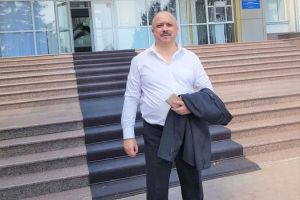 Corneliu Popovici despre reformele în educație: o manifestare clară a haosului d…
Corneliu Popovici despre reformele în educație: o manifestare clară a haosului d… 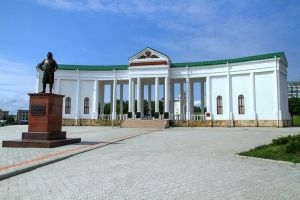 Moldografia: Muzeul Militar-istoric, Tighina
Moldografia: Muzeul Militar-istoric, Tighina 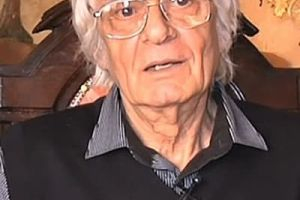 La mulţi ani, Nicolae Ghibu!
La mulţi ani, Nicolae Ghibu! 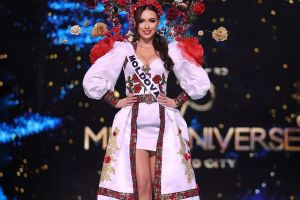 Stema Moldovei și portretul lui Ștefan cel Mare, pe haina reprezentantei noastre…
Stema Moldovei și portretul lui Ștefan cel Mare, pe haina reprezentantei noastre…  Roșiile conservate, leac miraculos contra atacului de cord
Roșiile conservate, leac miraculos contra atacului de cord 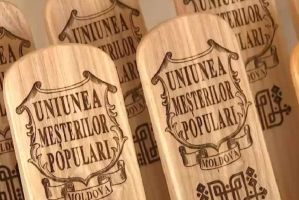 În capitală, a avut loc Gala Meșteșugarilor Populari din Moldova
În capitală, a avut loc Gala Meșteșugarilor Populari din Moldova  Mierea ajută la consolidarea nervilor şi memoriei
Mierea ajută la consolidarea nervilor şi memoriei 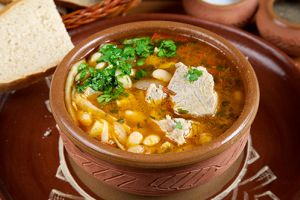 REŢETA ZILEI: Ciorbă ca la ţară
REŢETA ZILEI: Ciorbă ca la ţară 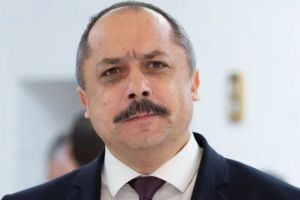 Corneliu Popovici: "Academia de Științe e vîndută pe bucăți"
Corneliu Popovici: "Academia de Științe e vîndută pe bucăți" 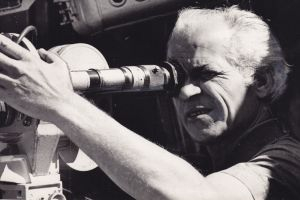 Istoria cinematografiei moldoveneşti
Istoria cinematografiei moldoveneşti 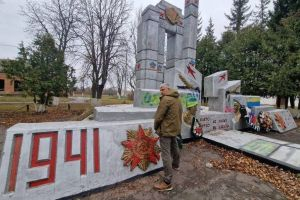 Alexei Petrovici: „Cei vii trebuie să apere memoria cinstită a soldaților căzuți…
Alexei Petrovici: „Cei vii trebuie să apere memoria cinstită a soldaților căzuți… 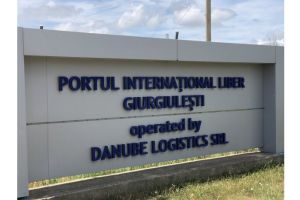 Vasile Chirtoca: „Portul Internațional Liber Giurgiulești trebuie să fie gestion…
Vasile Chirtoca: „Portul Internațional Liber Giurgiulești trebuie să fie gestion… 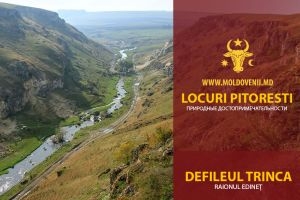 Defileul Trinca, Edineț (Slideshow)
Defileul Trinca, Edineț (Slideshow) 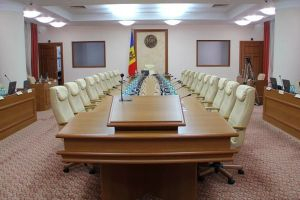 Remanieri în guvern: da vorbărie a fost..!
Remanieri în guvern: da vorbărie a fost..!  20 noiembrie - ce sărbătoare, ce evenimente, cine sînt sărbătoriți zilei de azi
20 noiembrie - ce sărbătoare, ce evenimente, cine sînt sărbătoriți zilei de azi 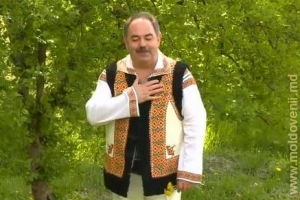 MELODIA ZILEI: Nicolae Paliţ - Că așa e moldoveanu
MELODIA ZILEI: Nicolae Paliţ - Că așa e moldoveanu  Alertă meteo: Ciclonul Atlantic aduce frig și ninsori în Moldova
Alertă meteo: Ciclonul Atlantic aduce frig și ninsori în Moldova 